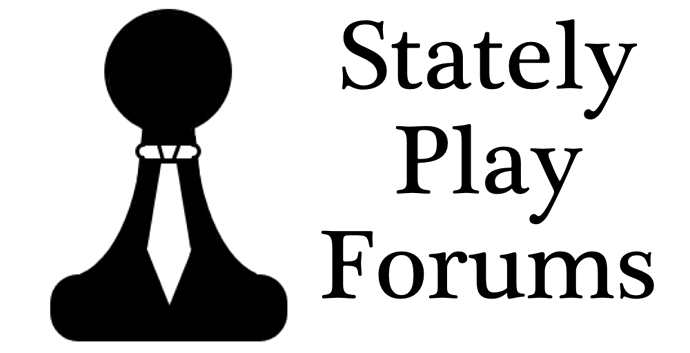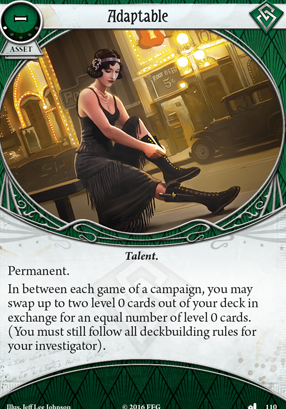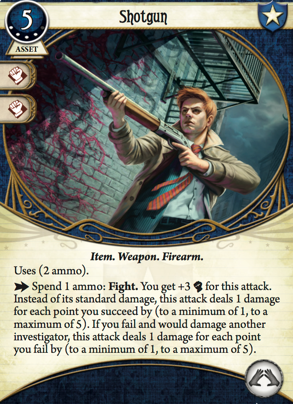Originally published at: http://statelyplay.com/2017/05/16/arkham-extras-stubborn-detective-ponders-free-will/
[What follows is an account of the campaign from the core set of the Arkham Horror: The Card Game, told from the perspective of a single card: Stubborn Detective. It contains minor spoilers, but, due to the variable nature of the campaign and the limited perspective of a detective interested in seeing the world through a comprehensible lens, keeps most of the discoveries hidden. Also, the Stubborn Detective remained true to his name, stubbornly refusing to be drawn during the final scenario, thus not being present to share any secrets from the campaign’s denouement. If you can’t tell, I followed Dave’s recommendation, and am very impressed by this game. - Kelsey]
There must have been a moment, at the beginning, where we could have said—no. But somehow we missed it.
If you think about determinism, it doesn’t really matter whether you’re stubborn, does it? There’s a path ahead, and you follow it. It’s just some people have straighter paths than others, and that’s all stubbornness is. But then, if you think there’s only mostly determinism, and some free will, then stubbornness means you don’t have that many moments to choose. Once Rosencrantz and Guildenstern responded to the summons, Hamlet was certain to divine their role as spies for Claudius and Gertrude, and his bitterness would leave him no option but to consign them to the gallows. And, what if determinists and those who believe in randomness and free will are both right for themselves, and it’s only the determinists whose paths never branch? How would you know when you met one of the other kind of person? If there were both sorts of people, how could you even tell which one you were?
“Would deciding Jim Culver had something to do with those murders have been one of my few branch-points?” the detective asked himself. He wondered, for a moment, what it was that he had seen which persuaded him, but then he was charging into the study of Jenny Barnes’ bijou home. It was a short fight–with some sort of holy candle in one hand, he still managed to land two strong hits which put the detective out of commission before he could get a fist in edgewise. There hadn’t even been time to wonder from where he barged into a second-floor study with a door sealed by magic. When he awoke, he found it puzzling that he had survived the fire which incinerated the house without any memory of having left–perhaps he’d fallen out the window and suffered a concussion, but it didn’t seem to have done any lasting damage.
If he weren’t stubborn, maybe his fall would have been the end of it. Maybe he wouldn’t have seen the pair trying to get into Ma’s Boarding House. But he was, so he did. And, knowing it was awful early for a boarding house to be locked, he couldn’t but know they were up to no good, so trying to subdue Culver was natural. The fog that seemed to arrive out of nowhere, though–that wasn’t natural, and if the other shadowy figure which showed up to take a poke at Culver was, whatever carried him off into the mist certainly wasn’t. If there’s only a little freedom, is there only a little luck, too? Because it seemed almost absurdly lucky to run into that same hinky fog over the graveyard later, with Culver collapsed into a grave in the middle of it. Old Mr. Collins, the undertaker, seemed happy enough to have had a chat with him, and said it had been some shadowy figure out of the fog who’d tossed the poor musician down.
The detective had a bit of empathy for people who’d been knocked unconscious by a fall, and Culver was looking more and more like a victim. He helped the poor fellow out of the hole, and did what he could for the wounds. For all that this man had taken a swing at him back at the house, that score had already been evened, and besides, maybe that had saved him from burning to death. It was near midnight by then, and the detective called it a day. On the morrow, he put the whole affair behind him and dedicated his efforts to the fruitless search for the Chandlers’ missing daughter.


